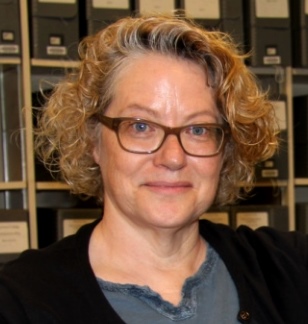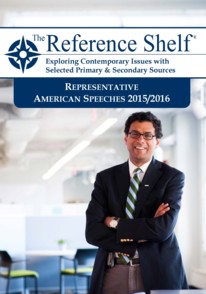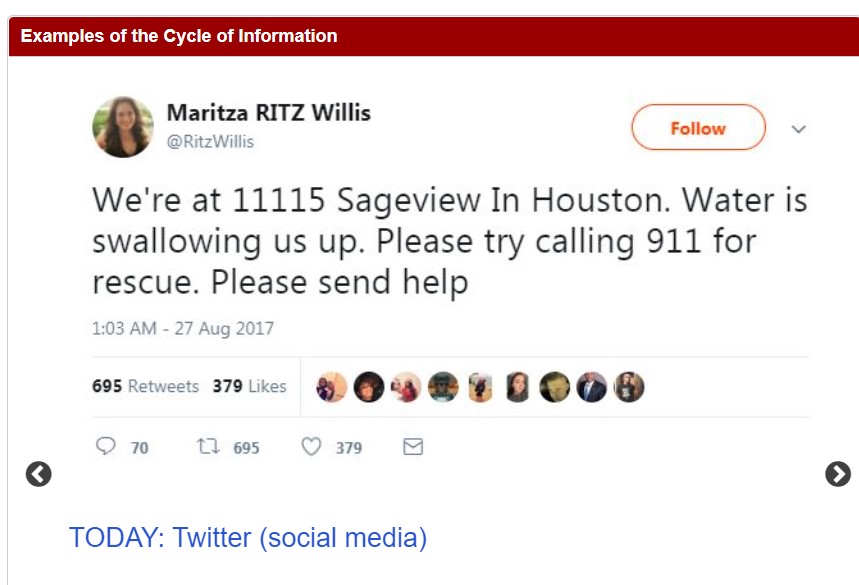COMM 101 Research Resources
 Processing Request
Processing Request
Library Research Video Series
This series of five videos will help COMM 101 students consider the ways in which information is created, assist in developing information evaluation skills, and locate authoritative information using library resources. This series will prepare students for completion of the library exercise worksheet (see at right).

- COMM 101 Research Series: The Cycle of Information (Video #1)
- COMM 101 Research Series: Evaluating Information (Video #2)
- COMM 101 Research Series: Academic Search Complete (Video #3)
- COMM 101 Research Series: Nexis Uni (Video #4)
- COMM 101 Research Series: Statista (Video #5)
- 5 Video Playlist COMM 101
COMM 101 Library Exercise Worksheet
This worksheet will help you start exploring a topic of interest using resources demonstrated in the video series.
1.To make this assignment most useful, brainstorm a topic YOU are interested in!
2. Complete the exercises, you know, completely!
3. With plenty of time before the due date, CONSULT with a Hewes Librarian (in-person) at the library research desk. You may ask for a librarian Sun (1pm-4:30pm, 6-9pm); M-Th (9am-12pm, 1:30-4:30pm, 6-9pm) and Fri 9am-12pm, 1:30-4:30pm)
The Cycle of Information illustrates the ways information is created and shared in various forms of media.
After careful evaluation, researchers may use any and all of these types of information in their research.
This cycle is continuous as new information is available and new knowledge is created.
Cycle of Information

Watch these videos for additional tips on identifying information
- Popular and Scholarly Sources: The Information Cycle (video)
This video explores the differences between popular and scholarly sources in the context of the information cycle. Attribution CC BY: John M. Pfau Library (3:36 length).
- World of Information (video)
This video explores ways to evaluate the sources of information we may encounter in academic research. Attribution: University of Tennessee Chattanooga UTC Library (6:26 length).
News/Newspapers
Appearance: Generally printed on newsprint in black ink.
Audience: Written for the general public.
Author/Authority: Articles written by staff writers and freelance journalists.
Citations: Will sometimes cite sources, a scholar, or a freelance writer.
Content: Includes current events and special features.
Frequency: Usually published daily or weekly.
Examples:


This video discusses the differences between scholarly and popular periodicals (journals). Used with permission of Peabody Library, Vanderbilt University (3:12 length). Retrieved from https://www.youtube.com/watch?v=ysPDZGj3cRA
- Popular and Scholarly Sources: The Information Cycle (video)
This video explores the differences between popular and scholarly sources in the context of the information cycle. Attribution CC BY: John M. Pfau Library (3:36 length).
Sample Information Sources to Evaluate
Brainstorming
- What interests you? Make a list.
- Scan your textbook for broad topic ideas.
- Peruse current journals and newspapers to see what catches your eye. Journals and newspapers are located on the main floor.
- Browse print encyclopedias in Hewes Library. Use the call number list below to browse in a subject area.
- Search digital encyclopedias for topic keywords and gather background information.
- Look at "hot topic" databases (see examples at right) that feature articles on current events and controversial issues.
- Discuss potential topics with your instructor, a librarian or a classmate.
Search these library resources for inspiration
- CQ Researcher This link opens in a new window
Provides in-depth coverage of contemporary issues. Written by experienced journalists, footnoted, and fact-checked.
- PRO / CON
Provides the pros and cons of controversial issues
Gather background information on your topic:
- For contextual information about a topic, person, place, or an event
- To generate research ideas
- To help focus a topic
- For more resources that provide bibliographies – which will lead to additional books and articles
Encyclopedias & Handbooks: search topic keywords
- Credo Reference This link opens in a new window
Online collection of over 800 reference titles, providing useful definitions, background information, quotations, images, and biographical information.
- Encyclopaedia Britannica Online This link opens in a new window
The online version of Britannica's encyclopedia, plus thousands of unique online articles, Merriam-Webster's Collegiate Dictionary (10th ed.), the Britannica Book of the Year, and more. Updated daily.
- Oxford Reference Online This link opens in a new window
In-depth, specialized titles from Oxford University Press’s award-winning Encyclopedias and Companions series, and a selection of partner publishers’ scholarly works.
- Sage E-Reference This link opens in a new window
Reference titles covering a wide variety of subjects, including the humanities and social sciences.
- CQ Researcher provides original, authoritative reports on social and political issues written by journalists.
- Topics include public policy, law, civil liberties, international affairs, economics, health, education, the environment, technology, and more.
- CQ Researcher is known for objectivity, breadth, and depth of coverage.
Each report includes several key sections which can be helpful in understanding the background and complexity of contemporary issues. Reports include the following sections:
Overview of the Issue: background and contextual information
Current Situation: recent information as of when the report was published
Chronology: timeline of important events in this topic
Pro/Con Debate: presents complexity of a topic from multiple perspectives
Bibliography & Footnotes: further resources to explore
Evaluating Sources
When conducting research, we encounter information in many places and formats.
It is OUR job to evaluate the information we find to determine:
- WHAT is the source of the information
- IF and HOW we should utilize the information
Sample Information Sources to Evaluate
Criteria for Evaluating Sources
Ask these questions to evaluate information and determine IF and HOW you will utilize the information.
| Criteria | Questions to Ask |
| 1. What is it? Look at how information is packaged for clues about what it is and how it can be used. |
|
|
2. Authority / Credibility |
|
|
3. Purpose / Intent |
|
|
4. Accuracy |
|
|
5. Scope / Relevance |
|
| 6. Currency / Date Some written works are ageless (e.g., classic literature) while others (e.g., technological news) become outdated quickly. It is important to determine if currency is pertinent to your research. |
|
Purdue University's OWL (Online Writing Lab) has tutorials on the major citation styles where you can learn more:
- Avoiding Plagarism
Advice and examples on how to avoid plagiarism from Purdue University's Online Writing Lab (OWL).
There are several citation styles, but the most frequently used on campus are MLA, APA, and Chicago citation styles. The library maintains copies of each print style guide in the Reference Collection on the main floor, organized by the call numbers below.
Bedford Handbook (10th ed)
Call Number: Reference PE1408.H277 2017
MLA Handbook (8th ed)
Call Number: Reference PE1408.M64 2016
(APA) Publication manual of the American Psychological Association (6th edition)
Call Number: Reference PE1408 .A46 2010
The Chicago Manual of Style (17th ed)
Call Number: Reference PE1408 .U69 2017
To avoid plagiarizing someone else words or ideas, make sure you:
- Paraphrase the original text into your own words. Be sure you are not just rearranging phrases or replacing a couple of words.
- Use quotation marks around text that has been taken directly from the original source.
- Cite every source of information you use to write your paper, unless it is common knowledge. Common knowledge is generally accepted facts that can be verified in several sources. (example: George Washington was the first U.S. president.)
- When in doubt, cite it!
- Read more about avoiding plagiarism from Purdue University's OWL (Online Writing Lab) website
Plagiarism is the use of sources without providing correct acknowledgments. When you use ideas or words created by another person and do not give proper credit, you are claiming the words or ideas are your own. In essence, you are stealing from the original writer.
Plagiarism may take many forms: cheating, copying information directly without providing quotation marks, failing to cite sources, or citing sources incorrectly. It does not matter whether you intended to plagiarize or whether the plagiarism occurred unintentionally; it still constitutes academic dishonesty. Ignorance of the rules of correct citation is not an acceptable excuse for plagiarism.
Plagiarism and other forms of academic dishonesty can subject a student to both academic discipline and disciplinary action. Please see the Monmouth College Student Handbook's section on Academic Honesty.
Academic Integrity: What it is and why it matters: a video by Columbia College Library (Vancouver)
Avoid Plagiarism
To avoid plagiarizing someone else words or ideas, make sure you:
- Paraphrase the original text into your own words. Be sure you are not just rearranging phrases or replacing a couple of words.
- Use quotation marks around text that has been taken directly from the original source.
- Cite every source of information you use to write your paper, unless it is common knowledge. Common knowledge is generally accepted facts that can be verified in several sources. (example: George Washington was the first U.S. president.)
- When in doubt, cite it!
- Read more about avoiding plagiarism from Purdue University's OWL (Online Writing Lab) website
Zotero [zoh-TAIR-oh] is a free tool to help collect, organize, and cite research sources. With the click of a mouse, save citations and documents from websites, library catalogs, and research databases. Use Zotero to store citations and format bibliographies in MLA, APA, and Chicago citation styles!
An additional tool, ZoteroBib, can quickly create an individual citation by pasting in a URL, DOI, PMID, ISBN and title.
Zotero Guides
- Zotero support documentation: https://www.zotero.org/support/
- St. Xavier University website: https://lib.sxu.edu/zotero
- Georgia State University Library website: http://research.library.gsu.edu/zotero
- Idaho State University Library website: https://isu.libguides.com/zotero/about
How to install Zotero from Jason Puckett at Georgia State University Library
Getting Stuff Into Zotero from Zotero on Vimeo
.
- Visit the Information Desk and ask for a Librarian: Monday - Friday 9am-noon, 1:30-4:30pm
- Email a question or request a virtual consultation: [email protected]
- Chat or Text (309.204.9275) with a Librarian
 Sarah Henderson Sarah Henderson |
Director |
 Lynn Daw |
Technical Services Librarian / Archivist |
- Media Bias Charts
- Information Evaluation Chart
Printable version of the evaluation chart above.
- Evaluating News Sites: Credible or Clickbait?
Activity created by Candice Benjes-Small (Information Literacy & Outreach, Radford University)
- Evaluating Sources in a ‘Post-Truth’ World: Ideas for Teaching and Learning About Fake News
Lesson plan examples from The New York Times
- Multimedia Educational Resource for Learning and Online Teaching
Information evaluation resources from MERLOT, a "cooperative initiative to provide peer-reviewed digital learning materials"
Library database resources provide published, peer-reviewed information sources. Start your research here, rather than Google.
Snopes.com : One of the oldest debunking sites on the Internet, Snopes.com focuses on urban legends, news stories and memes and cite their sources at the end of each debunking.
FactCheck : A product of the Annenberg Public Policy Center, this site assists in checking up on political claims.
Politifact : The Pulitzer Prize-winning Politifact researches the claims of politicians and checks their accuracy.
LinkedIn : A professional networking website that can help look up the individuals to view background and credentials.
Fact-Checking Sites : A list of additional reputable websites to help check a claim. From "Web Literacy for Student Fact-Checkers" by Michael A. Caulfield.
- American Rhetoric"Dedicated to rhetoric and public communication in the United States. Offers an archive of speeches, movie speeches, and audio figures of speech."
- Cicero Speechwriting Awards
The full text of award-winning speeches in many subject areas such as politics, business, media, non-profit, motivational and much more. See also links to prior awards at the bottom of the website.
- Classic Speeches from U.S. SenateRead the eloquent orations of Daniel Webster and Robert Hayne and other Senators from 1830 onward.
- Inaugural Addresses of the Presidents of the United States
This website gathers the text of U.S. presidential inaugural speeches from the George Washington to the current president from government sources. See citation at end of speech text.
- Speech Index: an index to collections of world famous orations and speeches for various occasions [2 print vols]The purpose of this resource is to serve as a quick guide to speeches given by famous orators between 1935-1970. Found in the Hewes Library Reference Collection: AI 3 .S85 1966
- U.S. CongressChoose to search ALL SOURCES for the word SPEECH and your topic (person, event). The text of the speech will be provided.
- U.S. White House: Speeches and RemarksOfficial remarks and speeches from the Executive branch of the United States government. See also the Presidential Weekly Address.
- Vital Speeches of the DayThis monthly periodical publishes text of current speeches, organized by date and subject. Browse current issues in the main floor Periodicals of Hewes Library. Contents are searchable and full text in the library database Academic Search Complete.
 Representative American Speeches (Reference Shelf Series)
Representative American Speeches (Reference Shelf Series)
Call Number: PS 668 .B3 "Offers some of the most engaging American speeches of the year...covering areas in politics, education, popular culture, as well as trending topics in the news." Available in PRINT (from approximately 1938-present) and ONLINE (2015-16 only).
- TED: Ideas worth spreadingA collection of video talks from TED, "a nonprofit devoted to spreading ideas, usually in the form of short, powerful talks (18 minutes or less."
- History Channel: Famous Speeches
Audio and/or video from famous historical speeches.
- Academic Video Online This link opens in a new window
Academic Video Online (AVON), is a continuously growing collection of more than 50,000 films.
To find SPEECHES:
1. Type a keyword (topic, person, event) in the search box
2. Conduct the search
3. Select CONTENT TYPE under REFINE YOUR SEARCH on the left side of the results page.
4. Select MORE+
5. Include "Speech/Address" and/or "Lecture/Presentation" and click UPDATE. Your results will now be limited to public speaking examples.
Complementing and building from the ILA experience, Communications 101 provides the opportunity for targeted research on a topic. COMM 101's focus on locating authoritative evidence, critically evaluating information, and citing sources provides ample opportunity for information literacy collaboration.
Research Instruction Session (one class period)
The instruction session in Hewes Library discusses the information creation and dissemination process and evaluates types and purposes of publications, most notably scholarly and popular sources. Students are introduced to strategic exploration using a discrete group of library databases. Faculty may schedule an instruction session with the Public Services Librairan.
Start Your Research Worksheet Assignment
A provided worksheet complements the research instruction session and allows hand-on application of the resources introduced in the library research session. Students utilize the worksheet to begin research on their proposed topic and review the worksheet with a librarian when completed. This conversation is an opportunity to follow up on questions and encourages a more personal dialog. The assignment also serves as an assessment of the instruction session overall. Worksheets are turned in for credit to the course faculty.
Plagiarism Tutorial
Students may be assigned a tutorial (courtesy of Indiana University) to reinforce the importance of citation in academic integrity and the scholarly conversation, building on their ILA experience. A certificate of completion provides assessment.


